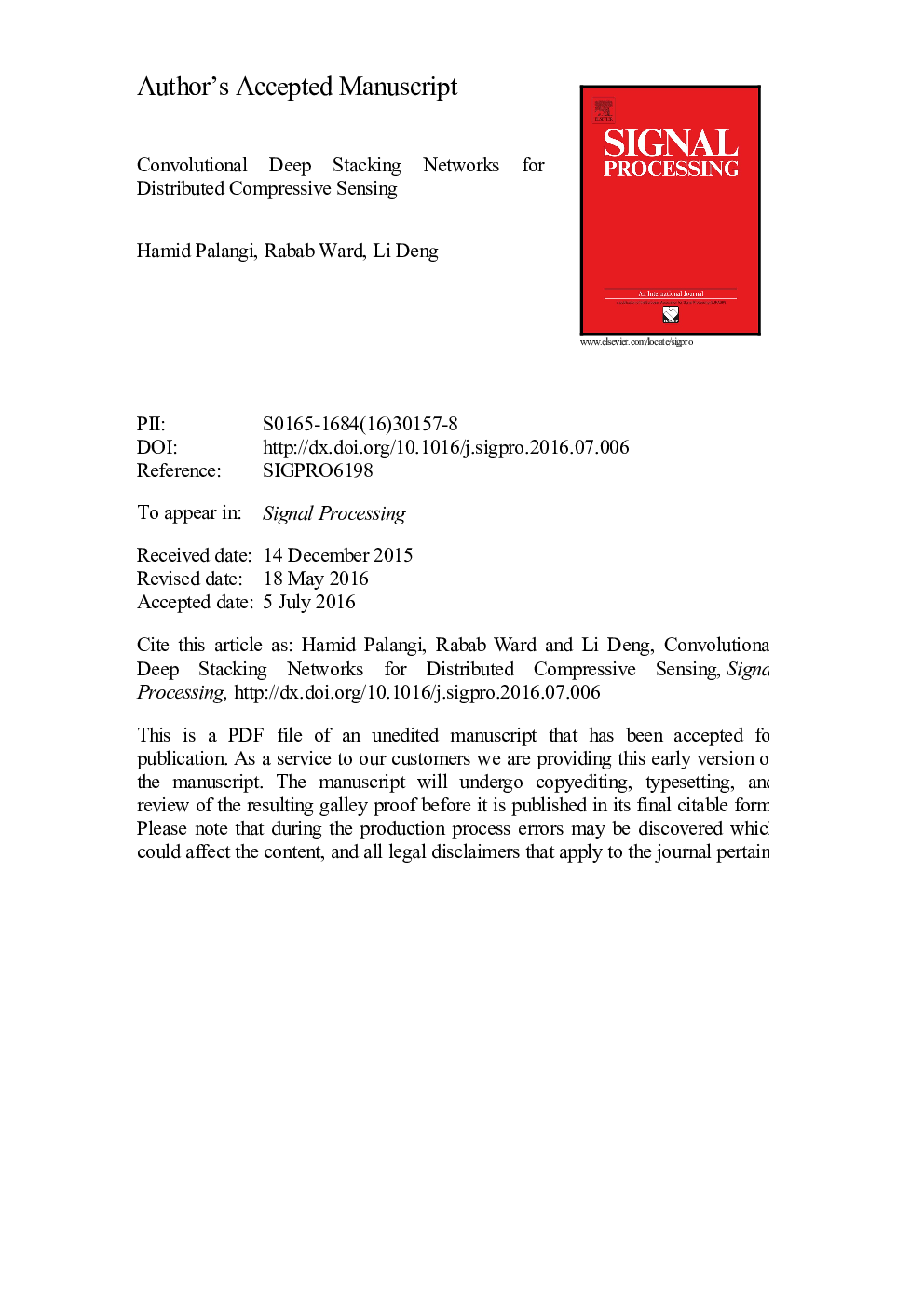| Article ID | Journal | Published Year | Pages | File Type |
|---|---|---|---|---|
| 6958046 | Signal Processing | 2017 | 29 Pages |
Abstract
This paper addresses the reconstruction of sparse vectors in the Multiple Measurement Vectors (MMV) problem in compressive sensing, where the sparse vectors are correlated. This problem has so far been studied using model based and Bayesian methods. In this paper, we propose a deep learning approach that relies on a Convolutional Deep Stacking Network (CDSN) to capture the dependency among the different channels. To reconstruct the sparse vectors, we propose a greedy method that exploits the information captured by CDSN. The proposed method encodes the sparse vectors using random measurements (as done usually in compressive sensing). Experiments using a real world image dataset show that the proposed method outperforms the traditional MMV solver, i.e., Simultaneous Orthogonal Matching Pursuit (SOMP), as well as three of the Bayesian methods proposed for solving the MMV compressive sensing problem. We also show that the proposed method is almost as fast as greedy methods. The good performance of the proposed method depends on the availability of training data (as is the case in all deep learning methods). The training data, e.g., different images of the same class or signals with similar sparsity patterns are usually available for many applications.
Related Topics
Physical Sciences and Engineering
Computer Science
Signal Processing
Authors
Hamid Palangi, Rabab Ward, Li Deng,
